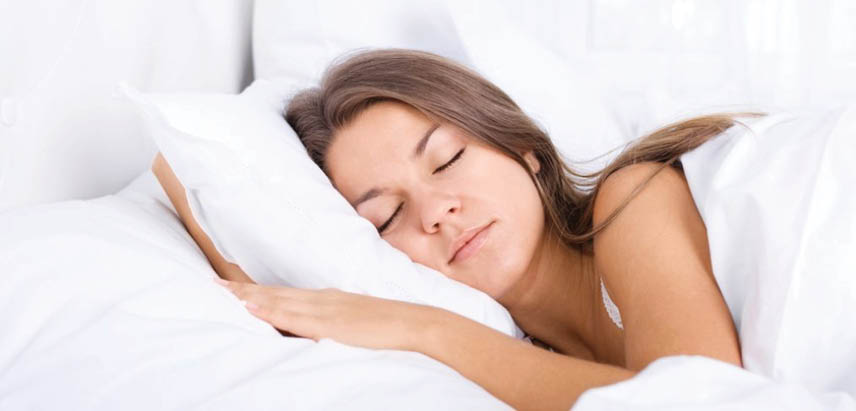Psychologist Mehezabin Dordi practices at the Sir H N Reliance Foundation Hospital, where she assesses, formulates and implements comprehensive therapeutic interventions for patients with psychological / psychiatric problems, and others. Connect with her: dordi.mehezabin@gmail.com
 On an average, humans spend approximately a third of their lives asleep. Sleep is an essential and involuntary process without which we cannot function effectively. It’s as important to our bodies as eating, drinking and breathing; it’s vital for maintaining good mental and physical health.
On an average, humans spend approximately a third of their lives asleep. Sleep is an essential and involuntary process without which we cannot function effectively. It’s as important to our bodies as eating, drinking and breathing; it’s vital for maintaining good mental and physical health.
Sleep is a complex process, during which the body goes through numerous processes and sleep stages. Sleeping helps repair and restore not just our body, but also our brain. During sleep, we process information, consolidate memories and undergo various maintenance processes that help us function when we are awake.
We must ensure to get the right amount and good quality of sleep. Poor sleep can lead to numerous health issues in the short term and long term. Some of the immediately recognisable ones include fatigue, sleepiness, poor concentration, memory lapses and irritability. This can also affect mood, energy and concentration levels, our relationships, and our ability to function. There’s a close relationship between sleep and mental health. Living with a mental health problem can affect how well you sleep, and poor sleep can have a negative impact on your mental health.
Sleep problems can be both – a symptom of, and a contributor to, mental health problems. Impairments to sleep quantity and quality are associated with a range of mental health problems, including major depression, anxiety disorders, schizophrenia, eating disorders, and borderline personality disorder. Science also suggests that good sleep could well pre-empt mental health care.
Covid-19 has disrupted the daily routines of most, and this has caused our sleep hygiene to suffer. It is estimated that over a third of the adult population globally experiences sleep difficulties in some form. In the first half of 2020 alone, worldwide google searches for insomnia increased by a huge percent. For many, it may simply be a case of making small lifestyle or attitude adjustments, to help us sleep better. Here are a few tips for cultivating Premium Sleep Hygiene:
Consistency Counts: Going to bed at the same time every night is a great place to start improving your sleep habits. Try to stay within 20 minutes of your usual bedtime every night, even on the weekends. This will help you keep a fixed wake-time each morning, so you’ll wake up feeling rested.
Cut The Stimulants: Try and curb your tea and coffee consumption, especially post 4:00 pm as it’s considered bad sleep hygiene. Similarly, smoking and drinking alcohol before bed will give you fitful sleep and a groggy morning. Steer clear of alcoholic beverages or cigarettes at least three hours before bed.
Turn Off Those Devices: TVs, smartphones, tablets, and computer monitors all emit blue light, which reduces serotonin production in the brain and makes us feel more alert. Powering down devices or adding a blue light filter in the evening will allow your body to start producing melatonin at the appropriate time, so sleep overcomes you, like it’s supposed to.
Chill Out: Your bedroom should be the ultimate place for sleep, and this includes maintaining the ideal temperature. Anything between 19 and 23 degrees Celsius is perfect for catching a good sleep.
Stay Out: Be sure to treat your bedroom as just that, a place where you sleep! Using your bedroom for relaxing, doing work, eating dinner, or watching TV is considered poor sleep hygiene, because your mind associates the bed as a place of wakefulness.
Watch What You Eat: Heavy meals or those with high acidity, sugar, or spice can cause fitful rest. Try and eat lighter, healthier dinners and avoid late night snacking.
Workout On Time: Keeping your workouts on an optimal schedule is great for sleep. Any physical activity should take place no later than three hours before bedtime. Evening workouts cause overstimulation when it’s time to rest, so shoot for morning workouts instead. You’ll feel more energized all day, and your body will be ready to relax, come evening.
Think Dark Or Dim: Once you’re done with dinner, start dimming the lights in your home. This tells your brain that sleep is on the horizon, and you’ll naturally start powering down. Once you get into bed, make sure your room is as dark as possible and put away the electronic devices.
Create A Pre-Bed Ritual: Creating a pre-bed ritual is the next best sleep hygiene habit, to sleeping on time each night. Avoid stressful, stimulating activities – doing work, discussing emotional issues. Physically and psychologically stressful activities cause the body to secrete the stress hormone – cortisol, which is associated with increasing alertness.
Avoid Lying Awake: If you find yourself lying in bed unable to drift off after 10 minutes, it’s recommended that you get up and try to relax somewhere else, like a chair or on the couch. You can try and find relaxation through gentle breathing, meditation, or splashing warm water on your face. Steer clear of electronics or reading, as these only keep your brain active.
Maintaining excellent sleep hygiene is a key part of cultivating great overall health and wellness. If you find yourself unable to sleep optimally, or chronic lack of sleep is something that you’re troubled with, it is important that you consult a qualified professional for help.
Sweet Dreams!
- દિકરી એટલે બીજી માં… - 20 April2024
- નાગપુરની બાઈ હીરાબાઈ એમ. મુલાનદરેમહેરનો ઇતિહાસ - 20 April2024
- વિશ્વ ભારતી સંસ્થાન દ્વારા રતિ વાડિયાનુંસન્માન કરવામાં આવ્યું - 20 April2024
